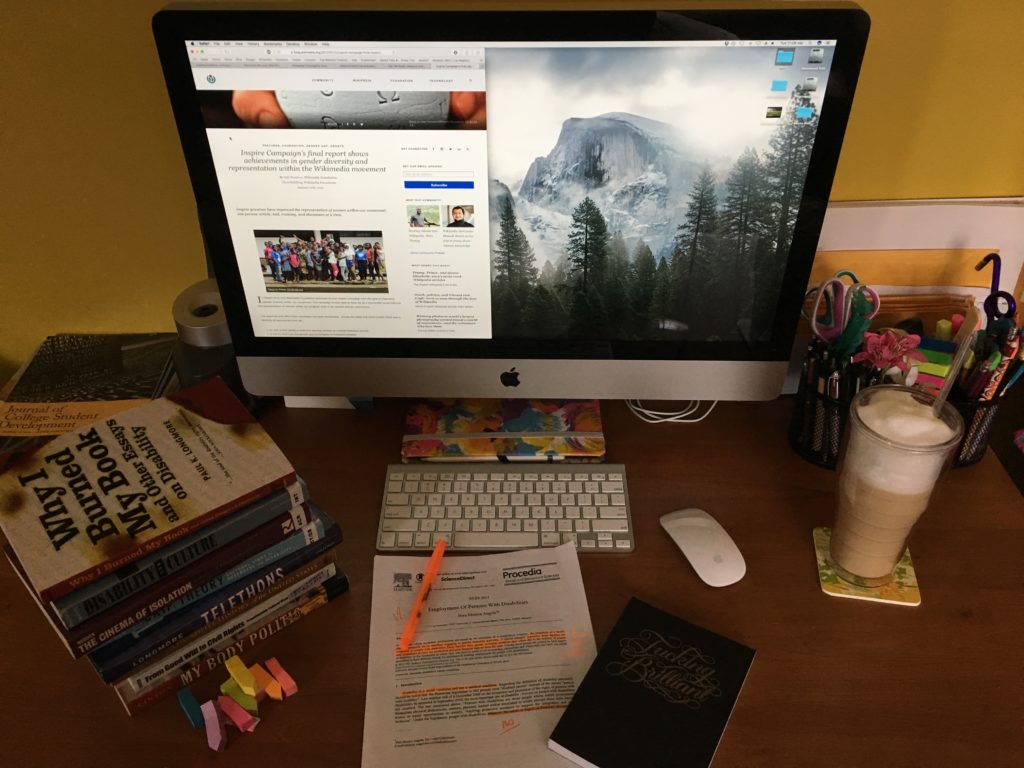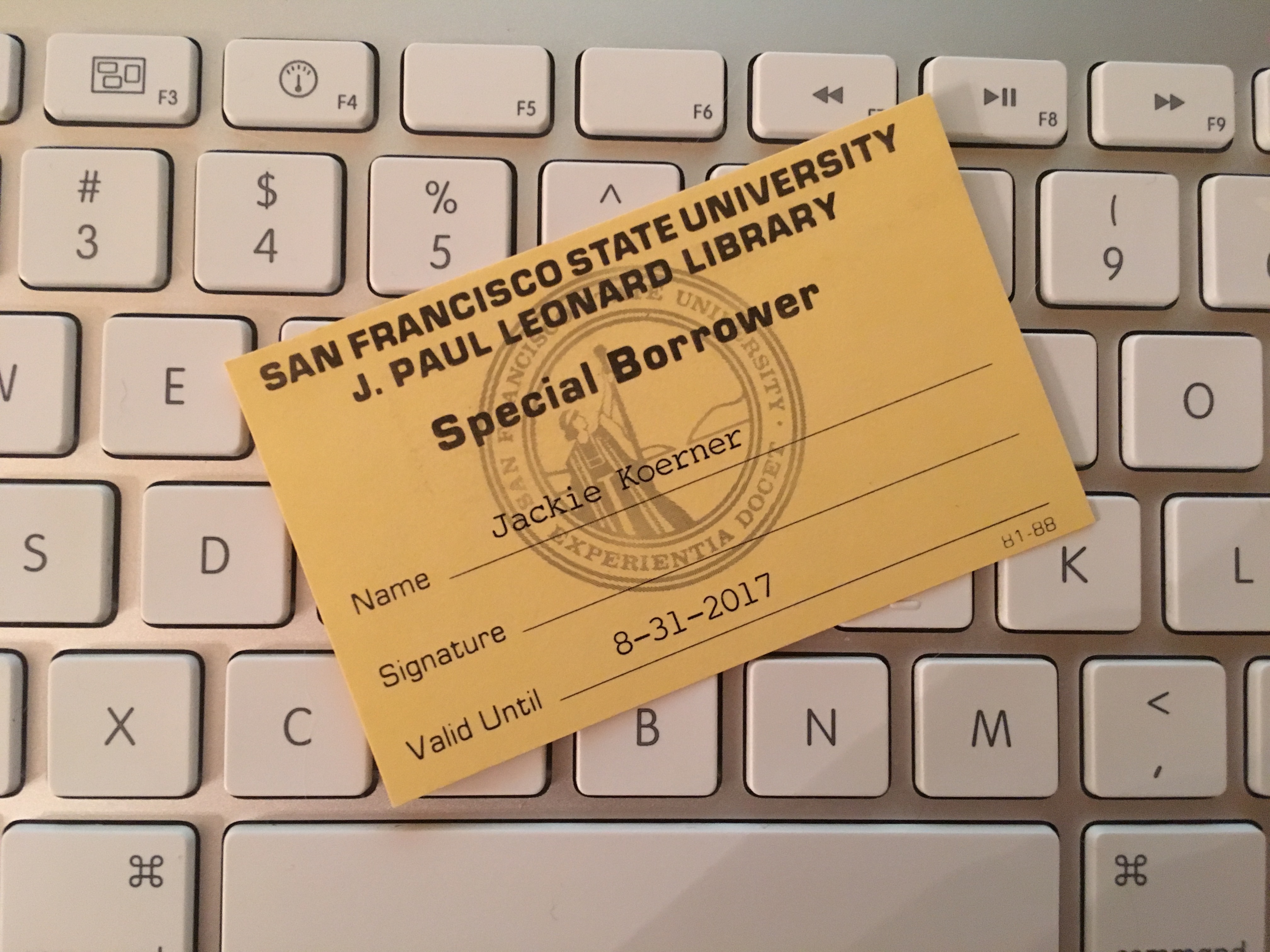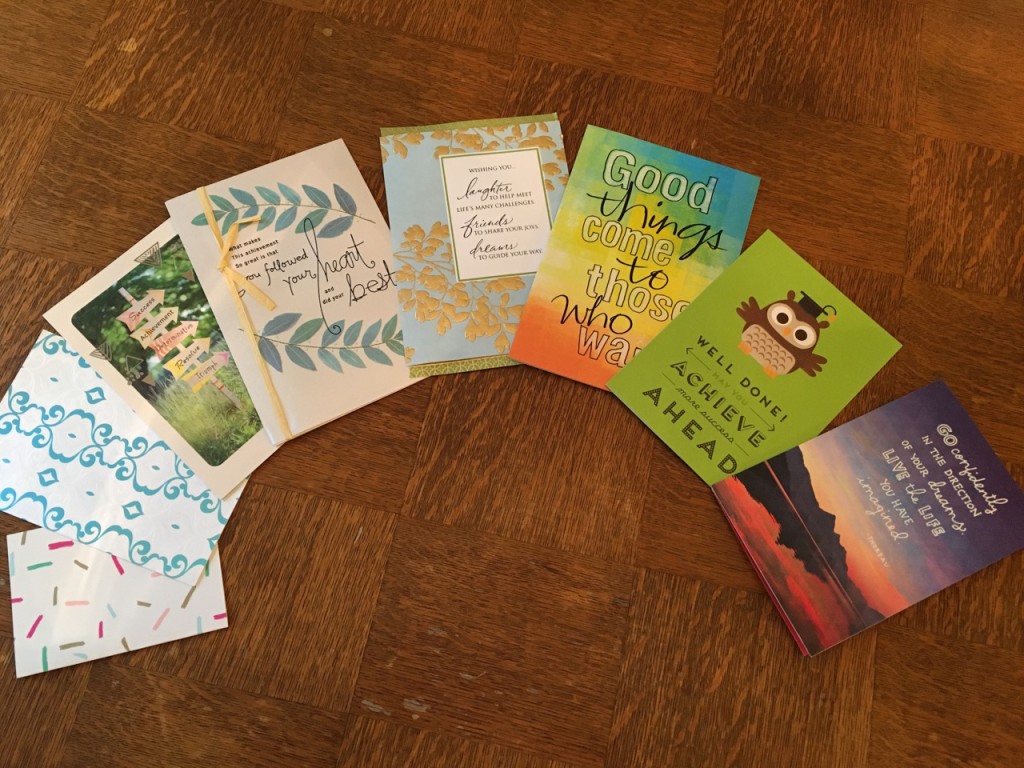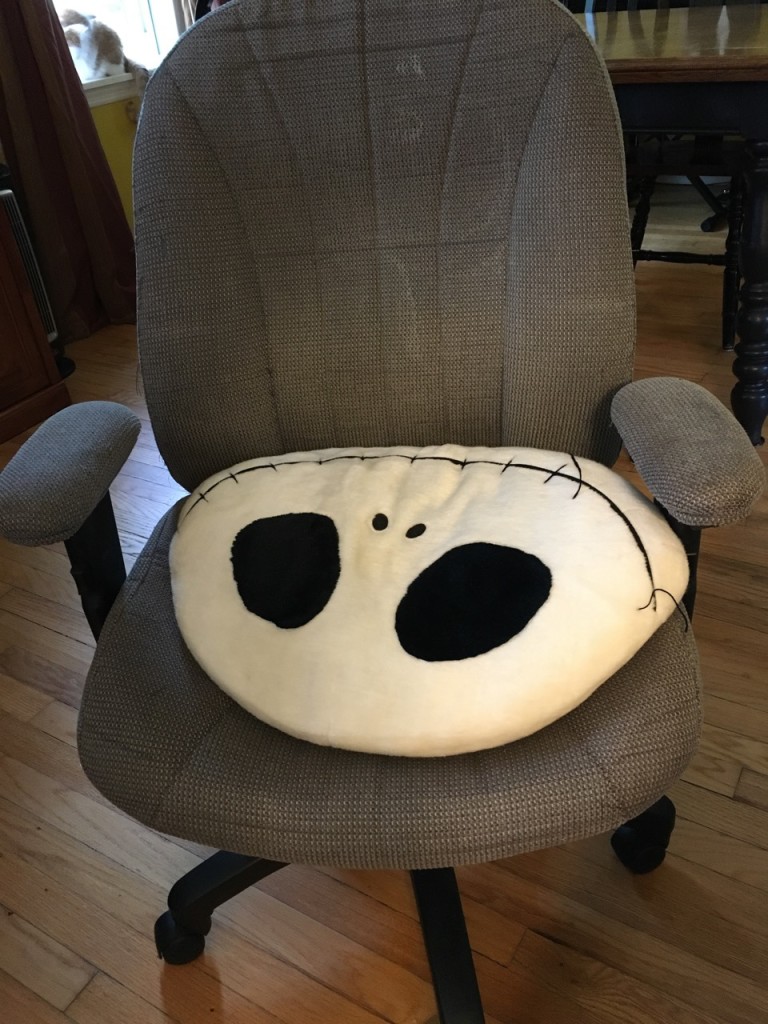Here it is friends. I’m running for school board. I have been thinking about this for a long time to be honest. I love our community and the people in it. But we can do better. Connect with me on my campaign site.
Tag: Education
I’m an academic and I use Wikipedia

Ok, friends, let’s talk about the elephant in the room. It’s time to move on. Everybody does it. I’ve seen colleagues do much worse. We all secretly do it, but are sure our colleagues will judge us for it.
I am an academic and I read and contribute to Wikipedia.
No one has unfriended me. I don’t have to wear a scarlet W around campus. I have kept my honors. Heck, I even am a visiting scholar because I contribute to Wikipedia.
Why am I saying this?
Because tonight I read a study about a study completed at two public Spanish universities (Aibar, E., Lladós-Masllorens, J., Meseguer-Artola, A., Minguillón, J., & Lerga, M. (2014). Wikipedia at university: what faculty think and do about it. The Electronic Library. 33(4). 668-683. doi: 10.1108/EL-12-2-2013-0217) – both relatively new and one of them was online only. The faculty used Wikipedia but only for subjects that were not in their primary field. Academics in STEM fields were more comfortable using Wikipedia for their scholarship and teaching. “So-called soft-science academics” were more skeptical.
Oh, my fellow social scientists, own up to it. You use Wikipedia. If you don’t, you should. What does this say about your bias? Go on. Go reflect on your actions and if your actions of judging Wikipedia/cloaking your true feelings are 1. valid and 2. really working toward the Truth we seek on the daily.
Did you know your students could learn in a collaborative environment where you don’t have to force inorganic collaboration? Pedagogical application is receiving mixed reviews in the literature. Why? Because many of those respondents are simply theorizing on how teaching with Wikipedia would be based on their assumptions about what Wikipedia is.
Wikipedia is “a new and powerful channel for the public communication of science.” Isn’t that what we want? Someone to read our work and to further scholarship? What are you waiting for? Give contributing to Wikipedia a chance, and what do you know, you might even let your hair down and teach with it next semester!
I’ll even volunteer to get you started.
I’m a visiting scholar!

I am very excited to announce I was selected to be a visiting scholar with San Francisco State University. The goal of my position is to use the library resources available to me through SFSU to improve content on Wikipedia regarding disability. This includes art, culture, history, and so much more. The directors at the Longmore Institute already created a list of potential topics for me to examine.
Here’s the information about the role:
Historian and activist Paul K. Longmore founded the Institute on Disability at SFSU in 1996. When he passed away in 2010, the university created an endowment for the Institute and renamed it in his honor. It undertakes projects that work to challenge prevailing notions and stereotypes of disability by showcasing disabled people’s strength, ingenuity, and originality. Its public education and cultural events connect the Bay Area’s vibrant disability communities and the general public with faculty and students at SF State to fight disability stigma with disability culture.
Already I have so much to add! I am using my old pal, Scrivener, to collect the information before I make edits. I love Scrivener’s functions, which allow me to search my literature research notes, which will ultimately allow me to improve numerous articles with each source I find.
Oh! Did you know you can edit Wikipedia too? It not only helps build and improve the free, quality knowledge available on the Internet, it’s a great free time activity too – addictive, and habit-forming, but [generally] not harmful to your health. 🙂 Feel free to see what I’m up to on Wikipedia.
Graduation Celebration

When my defense date was scheduled, Chris suggested having a graduation celebration at a local restaurant. I am not one to celebrate my accomplishments, but I thought, “I do miss my friends.” Being in a Ph.D. program is isolating. Finally now after five years, I get to rejoin society. 🙂 <smile>
Chris found this little family-owned restaurant near South City. It was so nice. The service was great. The food was great. They were so accommodating! If you’re in St. Louis, go eat there. It looks so unassuming from the outside, but it’s a wonderful place to eat or have a large party.
Thank you to everyone who was able to make it out that evening. Sorry some of you could not make it. We need to meet for a coffee date. It was wonderful to get to see all the new little someones in our group and enjoy a meal without worrying about how much time I was spending away from my research and writing.
I always am the worst at receiving gifts, because I never expect anything and feel guilt when receiving gifts. Maybe this stems from my shyness. I’m outgoing unless the attention is on me, the person. In spite of my shy awkwardness around gift receiving, some of my friends and family were so gracious to give me cards, a coffee mug, flowers, money gifts, Star Wars nerdery, and wine.
Because of my guilt I feel when receiving gifts (I know, weird, right?), I always want to make sure I’m very responsible in buying items with gift cards and money. I thought very hard over the past week-and-a-half about what would be good to buy with the money gifts.
First I thought books, but then I figured the local library has a great selection of books and eBooks, and my bookshelf space is already “inappropriately overstuffed.” (I’ll own that one.) So, no on books.
Previously, I purchased my graduation regalia with a money gift from my parents and the bank of moi. (This is lovingly known around the house as my Pokemon outfit. Mom is evolving.)
This gift I would buy needed to be something practical and really applicable for where this degree took me.
For the past five years, I have been using a hand-me-down desk chair from my parents.

This desk chair was purchased when my family bought a new home computer when I was 13 – it was 1995. Because the foam in the seat is now worn out and the bolts are now just under the fabric, I sit on a Jack Skellington pillow. Sorry, Jack.
Considering now I will be doing a lot of academic coaching, independent research, and writing, thus working from home, Chris suggested it was time for a new desk chair. I searched, and read, and debated. The Steelcase Gesture did have the best reviews everywhere I searched. But did I really want to drop that much on a chair? The last desk chair I purchased was in 2000 for $99. Bless that thing for lasting 11 years. And, arguably, this current chair has lived a healthy 21 years and it was more than $99 when my parents bought it. If this new chair lasts that long, it would only be 13 cents a day. Please understand, I am not used to spending money on myself.
After hearing my debates for the past week, and giving an unknown number of exasperated responses, Chris told me to “get over it.” Heeding my famous advice, last night I closed my eyes, and pushed the “Submit Order Now” button. My new desk chair will arrive Thursday. Appropriately, I ordered the chair in same blue as the velvet on my graduation regalia, signifying Education. It’ll help me take on the complexities of the state of education.
I am so fortunate to have such caring family and friends to help over the past few years, patiently ignore my absence, and help celebrate my accomplishments. Thank you.
If you want to come attend my hooding ceremony and watch me evolve into a Ph.D. graduate while in my Pokemon outfit, it’ll be the 18th of May, 2017.
Separate St. Louis education is not equal
![By Tom Murphy VII (Own work) [GFDL (http://www.gnu.org/copyleft/fdl.html), CC-BY-SA-3.0 (http://creativecommons.org/licenses/by-sa/3.0/) or CC BY-SA 2.0 (http://creativecommons.org/licenses/by-sa/2.0)], via Wikimedia Commons](http://www.jackiekoerner.com/wp-content/uploads/2016/08/Old_book_bindings-2.jpg)
The house hunt for these families goes something like this: 3 bedroom, maybe 4, 2 bathroom, big backyard for junior, 2 car garage. Older, charming cottage? Oh, yes! But only after we complete the St. Louis County lead-abatement program.
For the families who stay, their children mostly attend private schools or better-funded charter or magnet schools over the neighborhood schools. There are the families who choose to have their kids attend the neighborhood schools. But that’s just it. They have a choice.
Choice is a privilege many people forget they have. Others are acutely aware that they don’t have that privilege.
The other families who have to stay, usually their kids have to attend their neighborhood schools. They have to. There is no choice. They don’t get that privilege.
Why is this a problem? Public schools rely on property taxes for funding. If you live in, say, Ladue, your property taxes are higher than those of Webster Groves, and those are higher than those of Fenton, and those, while lower, generate more income than those property taxes in St. Louis City.
Here are some examples. These are actual property tax figures from 2015. All the homes used were approximately the same size:
Fenton: $7572.27
St. Louis City: $8159.71
Webster Groves: $9329.12
Ladue: $15,961.37
Ladue arguably comes out on top. St. Louis City is near the bottom, but population, household income, etc. affect paid property taxes thus affect school funding.
St. Louis City is pretty small. People usually work there and go home to the suburbs. Our night life isn’t huge. Many properties are vacant, or the families have trouble paying for groceries, so why would they be able to paid their annual taxes? Only property tax funding that gets paid gets paid to the schools.
Read more about how school funding’s reliance on property taxes fails children from NPR and how your own school stacks up. Find out how Brittany Packnett is tackling the education problem here in St. Louis from all angles.
There are children in our community not receiving the education the St. Louis community can afford. We are failing them. We are failing our future.
On top of the lack of funding, the SLPS students are being poisoned with IQ-robbing lead in the drinking water. This is all happening while the children a 20-minute drive away are getting decadence added to their Fiji-water education: the water fountain returns as a metaphor for division in St. Louis.
We treat city and county as separate. They are very unequal. It’s no wonder why education inequality thrives here.
My question is, why wouldn’t the people who can afford to donate to education want to donate somewhere where the funds can make a huge difference? Wouldn’t they want to be that kind of a hero?
Education Coffee Chat
Yesterday I had a great chat with fellow educator, Sherita Love. I met Sherita at Venture Cafe a couple of weeks ago where she put together a panel of other talented educators. This panel spoke about the education inequalities and in the area and what they were doing to examine and affect the problem.
The panel only was able to chat shortly because the audience felt they needed a forum to speak. We need to have roundtables here in St. Louis to talk about education and the awesome programs working to impact education. Sherita is making sure more forums for conversations are open, but people interested in chatting about education need to attend. The best collaborations and ideas can come out of the most unexpected places.
At our coffee chat, Sherita and I talked about some of the needs in the St. Louis area. We talked about assumptions, college readiness (& awareness), education diversity, parent advocacy, transition planning, volunteering, etc. We also talked about cool stuff happening around the St. Louis area to affect education. One such cool thing is the organization Sherita co-founded with another great educator: GLAMM. This is just one of the many cool projects and programs happening around the area. See how you can get involved!
There will be plenty of upcoming conversations about education happening in St. Louis. I’ll post about them here, but would love to see you there! Education is everyone’s right and everyone’s responsibility. Think about how you can make a change in someone’s education. It may be small to you, but huge to them.
Free Knowledge, Inquire Within
You use Wikipedia. But did you know it’s not just good for giving you fingertip access to factoids? The movement is much more than that. There are some pretty big goals.
Sometimes we take access to to quality, bias-free information for granted. Not everyone in the world has that luxury. But you can help make a change.
Get involved
Anyone can. You don’t have to be an expert or a jack-of-all-trades. You can start by cleaning up grammar on existing articles. Or take on bigger tasks.
Donate
If you haven’t watched the video above, do. It sounds so silly, but I get so excited when I think about how much information is given and received each day. What a gift! Donate today to give the gift of knowledge to everyone.
To find out more about all things wiki, come join me and others at the St. Louis Wiknic on July 10.
5 Essential Questions in Life
Today I watched Dean Ryan’s speech at Harvard Graduate School of Education’s commencement. He’s right. These five questions are essential.
Wait, what?
It is an effective way to ask for clarification. Pause and think about what you are doing. Are you doing it for the right reasons? “Importance of inquiry over advocacy.” So many of us are so excited to make an impact, we forget to stop and think about what the community/students/<insert stakeholders here> need and wants. Slow down and ask with an open mind.
I wonder…?
As we move from childhood into adulthood, we tend to lose our curiosity. We think we must have a definitive answer for everything the instant we are broached with a question. This question encourages curiosity and wonderment. Take a moment and admire the world you hope to change and wonder.
Couldn’t we at least…?
This is something we use to move forward, either when we are at an impasse or if we are not sure where to go. This question can be helpful in negotiations where there isn’t alignment. It is also helpful to get a heading when you don’t know your destination. A good start to fixing a problem, or a great start to an investigation.
How can I help?
A very curious thing that was told to me once by Sister Jay: “Service is not selfless.” What she meant was our actions are not all selfless. We get something out of doing service, perhaps good feelings or recognition of good deeds, and we need to recognize that. We need to be sure our desire to help does not get in the way of helping. Be sure the help is in the manner in which the community/students/<stakeholders> need or want. “Be aware of the Savior complex. Don’t let the real pitfalls extinguish one of the most humane acts. How we help matters as much as we do help.”
What truly matters?
At the end of the day, what matters to you? To society? For students? Dive deep and ask questions to find out what is at the heart of everything: beliefs, curriculum, habits, learning outcomes, practices, etc.
Finally, there is a bonus question:
And did you get what you wanted out of life, even so…?
When choosing to live every day, ask these questions often. You will find yourself both “cherished and respected.” Lead a life of passion, and you will inevitably answer this question with, “I did.”
Who are you?
Currently I am listening to the audiobook of Year of Yes by Shonda Rhimes (she’s the writer behind Grey’s Anatomy, Scandal, awesome TV, etc.).
Yesterday Shonda read a chapter and basically posed the question for readers to ask themselves “Who am I?”
This is the second time I have heard that phrase this week, in suggestion for the listener to ask themselves. The first time, I sat and thought, “Wow. I don’t know. I’m nobody.”
Today I am writing my methodology chapter for my research proposal for my dissertation. I read my “Personal Truths” section I wrote some months ago. I got teary eyed.
While I won’t bore you with the whole bit, here is a section of my “Personal Truths.”
This is who I am:
The researcher recognizes several personal truths as they pertain to this research study. The researcher has a great desire for all individuals to obtain at least a four-year degree from a higher education institution. The researcher feels the knowledge a student may draw from their time at a higher education institution is expansive and can be transformative. She recognizes how higher education affects many aspects of one’s life, including emotional, financial, intellectual through to their individual world view.
Education should be a right and not a privilege is also a personal truth of the researcher. While not everyone desires a higher education, higher education should be an available opportunity for those who desire it. The researcher firmly subscribes to the theories of Howard Gardner, which indicates intelligence may manifest in various forms and not only in the traditional sense. She feels strongly that individuals in society should not be discounted for their difference from the traditional. Society comprises individuals, yet society ostracizes anyone different from the herd.
This is my passion.
It makes me smile. It makes me giddy. It makes me cry. It makes me talk so inspiringly to other people about education that they themselves are motivated to do something.
A few weeks ago I wrote about why many of us will likely fail in our careers, and why we should all follow our passion. Do something you feel this passionate about, and we might just save the world.
Internet for All
The term net neutrality has been bouncing around for the past few years. While I’m sure many know what it is and the true impact of this on society, I’m also sure many get glassy-eyed when they hear the discussions. This is something that will affect us all. We should all pay attention for the hope of our society.
Perhaps I am being a bit bold when I say “hope for our society.” I think I’m spot on. We do not know yet the impact of the Internet on us as a people. We can clearly see that it has changed us, and I’d argue for the better.
Internet access is something most individuals have either in their home or at least in their community. Net neutrality levels the playing field by providing nearly limitless access to educational resources (MOOCs anyone?), professional connections and collaborations (how many of us got to collaborate and communicate with people around the world instantly before the Internet?), and so much more!
Net neutrality is important to our current success as a society. Not only do people pay bills online, shop for new clothes, but we do amazing things together. We collaborate. We communicate. We educate. We are empowered and all through this interconnected web.
President Obama spoke today about his thoughts on net neutrality. I do hope the FCC takes some of the hints so we can keep moving forward with such powerful intentions.
Read and Watch more: